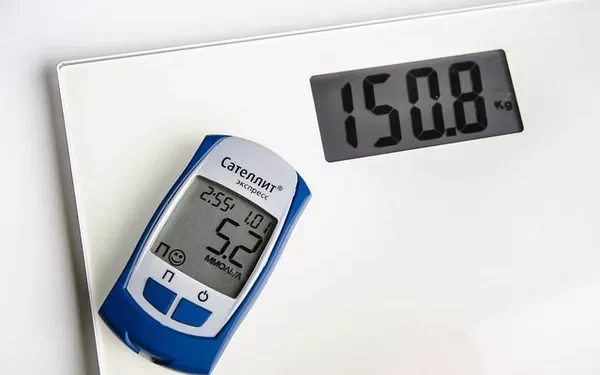Hypoglycemia, characterized by abnormally low blood glucose levels, can be a challenging condition to manage, particularly when it is linked to underlying autoimmune diseases. While hypoglycemia is commonly associated with diabetes treatment and other non-autoimmune conditions, certain autoimmune diseases can also cause hypoglycemia through various mechanisms. Understanding these autoimmune conditions is crucial for accurate diagnosis and effective management of hypoglycemia. This comprehensive article delves into autoimmune diseases that cause hypoglycemia, exploring their mechanisms, symptoms, diagnosis, and treatment options.
Understanding Hypoglycemia
Hypoglycemia occurs when blood glucose levels fall below the normal range, typically defined as less than 70 mg/dL (3.9 mmol/L). It can result in a range of symptoms, including:
- Shakiness and Tremors
- Sweating
- Confusion or Irritability
- Dizziness or Lightheadedness
- Palpitations
- Blurred Vision
- Seizures or Loss of Consciousness (in severe cases)
While hypoglycemia is often associated with insulin treatment in diabetes, it can also be caused by various other conditions, including certain autoimmune diseases.
Autoimmune Diseases and Hypoglycemia
Autoimmune diseases occur when the immune system mistakenly attacks the body’s own tissues. Some autoimmune diseases can disrupt normal glucose metabolism, leading to hypoglycemia. Key autoimmune diseases associated with hypoglycemia include:
- Autoimmune Insulin Syndrome (AIS)
- Autoimmune Polyglandular Syndrome Type 2 (APS Type 2)
- Adrenal Insufficiency
- Type 1 Diabetes
1. Autoimmune Insulin Syndrome (AIS)
Autoimmune Insulin Syndrome (AIS), also known as “Insulin Autoimmune Syndrome,” is a rare condition characterized by the presence of autoantibodies against insulin. This syndrome can cause recurrent episodes of hypoglycemia.
Mechanism:
- In AIS, the body produces autoantibodies that bind to insulin, leading to excessive insulin activity and resultant hypoglycemia.
- The autoantibodies can also cause a temporary increase in insulin production, further contributing to low blood glucose levels.
Symptoms:
- Symptoms of AIS can include frequent hypoglycemic episodes, often without a clear cause.
- Patients may experience typical hypoglycemic symptoms such as sweating, dizziness, and confusion.
Diagnosis:
Clinical Evaluation: Diagnosis is based on clinical presentation, including recurrent hypoglycemia and the presence of autoantibodies against insulin.
Laboratory Tests: Blood tests to detect insulin autoantibodies and assess glucose levels are essential. Fasting insulin levels may also be evaluated to distinguish AIS from other conditions.
Treatment:
Glucose Management: Acute hypoglycemic episodes are managed with glucose administration, either orally or intravenously if severe.
Medications: Corticosteroids or immunosuppressive agents may be used to manage autoimmune activity.
Monitoring: Regular monitoring of blood glucose levels and autoantibody titers is crucial to adjust treatment as needed.
2. Autoimmune Polyglandular Syndrome Type 2 (APS Type 2)
Autoimmune Polyglandular Syndrome Type 2 (APS Type 2) is a complex autoimmune disorder that can affect multiple endocrine glands, including the pancreas, thyroid, and adrenal glands. It is associated with various autoimmune conditions, including autoimmune diabetes.
Mechanism:
Autoimmune Diabetes: In APS Type 2, autoimmune destruction of pancreatic beta cells can lead to type 1 diabetes, which typically results in hyperglycemia. However, APS Type 2 can also involve autoimmune hypoglycemia if there is an overproduction of insulin due to cross-reactive antibodies or other mechanisms.
Adrenal Insufficiency: Autoimmune destruction of the adrenal glands (Addison’s disease) can lead to insufficient cortisol production, affecting glucose metabolism and potentially causing hypoglycemia.
Symptoms:
Type 1 Diabetes Symptoms: Symptoms may include recurrent hypoglycemia if insulin production is erratically affected.
Adrenal Insufficiency Symptoms: Symptoms of adrenal insufficiency include fatigue, weight loss, and low blood pressure, which can compound the effects of hypoglycemia.
Diagnosis:
Clinical Presentation: Diagnosis involves recognizing the combination of autoimmune endocrine disorders.
Laboratory Tests: Tests include autoantibody screening, glucose levels, cortisol levels, and evaluation of other affected endocrine glands.
Treatment:
Hormone Replacement Therapy: Managing APS Type 2 often involves hormone replacement therapy for affected glands. For adrenal insufficiency, glucocorticoids are prescribed.
Diabetes Management: Type 1 diabetes in APS Type 2 requires insulin therapy, with careful monitoring to avoid hypoglycemia.
3. Adrenal Insufficiency
Adrenal Insufficiency, also known as Addison’s Disease, occurs when the adrenal glands do not produce sufficient amounts of hormones, particularly cortisol. Although not always classified under autoimmune diseases, when adrenal insufficiency is autoimmune, it can contribute to hypoglycemia.
Mechanism:
Cortisol Deficiency: Cortisol plays a crucial role in glucose metabolism. Insufficient cortisol production can lead to hypoglycemia by impairing gluconeogenesis (the production of glucose from non-carbohydrate sources) and decreasing insulin sensitivity.
Symptoms:
Fatigue and Weakness: Common symptoms include chronic fatigue, muscle weakness, and low blood pressure.
Hypoglycemia Symptoms: Patients may experience symptoms similar to hypoglycemia, such as dizziness and confusion, particularly during periods of stress or illness.
Diagnosis:
Clinical Evaluation: Diagnosis involves assessing symptoms of adrenal insufficiency and autoimmune disorders.
Laboratory Tests: Blood tests to measure cortisol levels and adrenocorticotropic hormone (ACTH) levels, along with adrenal antibody testing, are used to confirm the diagnosis.
Treatment:
Hormone Replacement Therapy: Treatment typically involves replacing cortisol with oral glucocorticoids (e.g., hydrocortisone).
Monitoring: Regular follow-up is essential to adjust medication dosages and manage any potential hypoglycemia.
4. Type 1 Diabetes
Type 1 Diabetes is an autoimmune condition characterized by the destruction of pancreatic beta cells, which produce insulin. While type 1 diabetes primarily causes hyperglycemia, certain situations can lead to hypoglycemia.
Mechanism:
Insulin Therapy: Individuals with type 1 diabetes require insulin therapy to manage blood glucose levels. Over-administration of insulin or incorrect dosing can result in hypoglycemia.
Insulin Autoantibodies: In rare cases, type 1 diabetes may be associated with the production of insulin autoantibodies that could potentially cause dysregulated insulin secretion and subsequent hypoglycemia.
Symptoms:
Typical Type 1 Diabetes Symptoms: Includes high blood glucose levels, increased thirst, and frequent urination. Hypoglycemia symptoms can occur if insulin doses are not managed properly.
Diagnosis:
Clinical Evaluation: Diagnosis is based on clinical history, including symptoms of type 1 diabetes and episodes of hypoglycemia.
Laboratory Tests: Blood glucose monitoring and testing for insulin autoantibodies help confirm the diagnosis and manage treatment.
Treatment:
Insulin Management: Careful adjustment of insulin doses is critical to avoid hypoglycemia.
Continuous Monitoring: Use of continuous glucose monitors (CGMs) can help track blood glucose levels and prevent hypoglycemic episodes.
See also: What’s Fasting Hypoglycemia
Conclusion
Hypoglycemia caused by autoimmune diseases presents unique challenges and requires careful management. Understanding the underlying autoimmune conditions that contribute to hypoglycemia is essential for accurate diagnosis and effective treatment. Autoimmune Insulin Syndrome, Autoimmune Polyglandular Syndrome Type 2, Adrenal Insufficiency, and Type 1 Diabetes each have distinct mechanisms and treatment approaches for managing hypoglycemia.
Effective management involves a combination of immediate interventions, such as glucose administration, and long-term strategies, including hormone replacement therapy and careful monitoring. Collaboration with healthcare providers is crucial to developing a comprehensive treatment plan that addresses both the autoimmune condition and associated hypoglycemia.
By recognizing the symptoms and understanding the mechanisms of autoimmune-related hypoglycemia, individuals and healthcare professionals can work together to improve management strategies and enhance overall health outcomes.
Related topics:



























